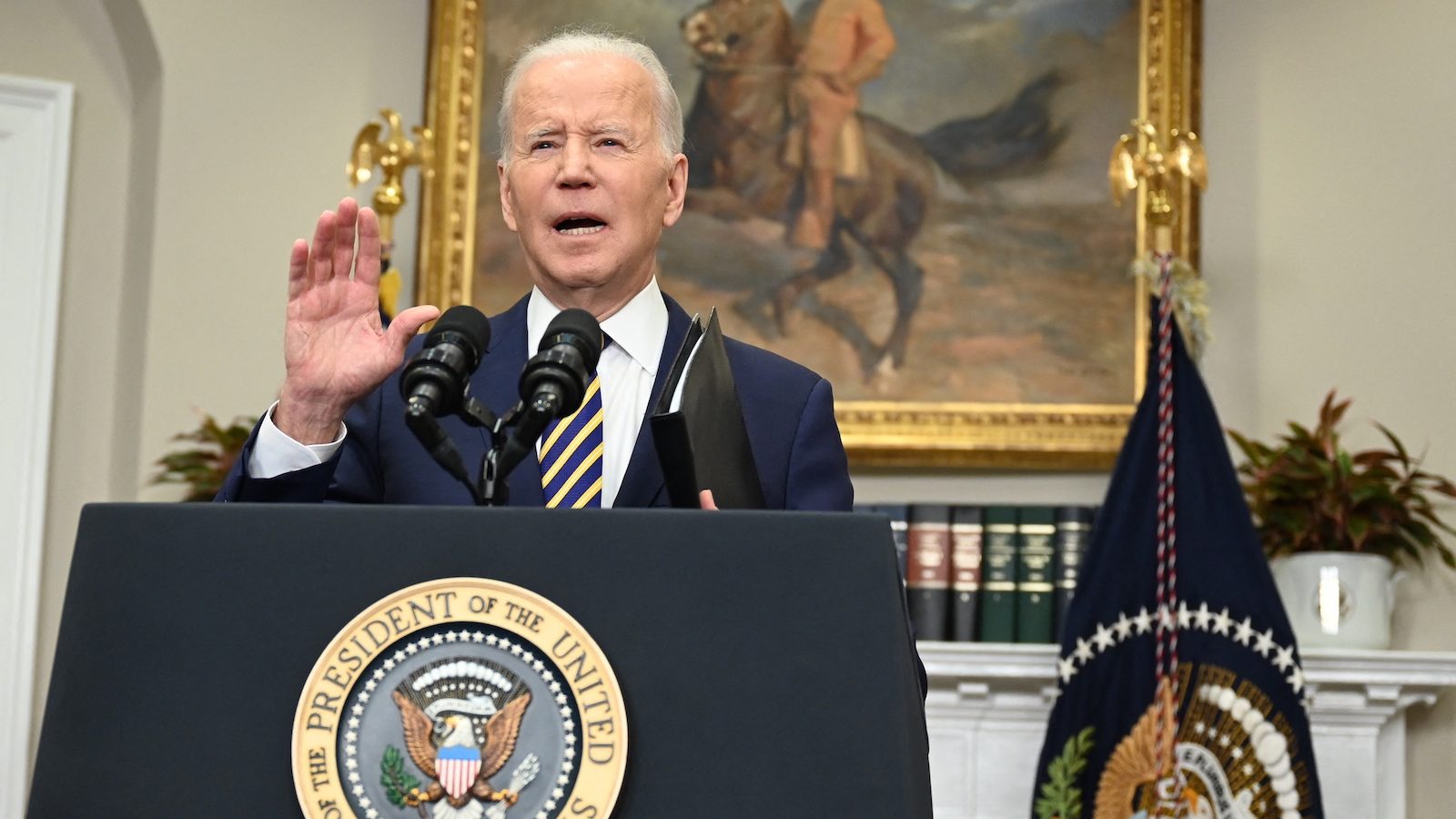President Joe Biden banned oil and gas imports from Russia on Tuesday in one of the most far-reaching sanctions against the country after President Vladimir Putin sent troops to invade neighboring Ukraine. The move comes as gas prices soar and some Democrats in Congress hope to use the moment to push a clean energy agenda.
The Ukraine crisis has roiled the global energy market as Russia produces a sizable chunk of the world’s oil (12 percent) and natural gas (17 percent) — commodities that are now seen as politically toxic in Europe and North America. Last week, for example, BP, Shell, and Exxon began pulling out of the Russian oil market.
The U.S. has relied on Russia for about 8 percent of its oil imports, roughly 700,000 barrels a day. Since Russia invaded Ukraine two weeks ago, the price of crude oil has soared 30 percent, and Americans have seen an 18 percent rise in gas prices, with the average now above $4 a gallon. “Defending freedom is going to cost,” Biden said during a press conference on Tuesday.
The chaotic moment proved to be another divisive one in American politics. The issue in question: whether the gap of Russian oil should be filled with more oil — or renewables. While fossil fuel-friendly interests have called for the U.S., the world’s leading producer of oil, to ramp up drilling, others viewed the moment of upheaval as one more reason the world should speed up the shift to clean energy.
“We really need to deeply think about how to restructure the global energy system to avoid this kind of exposure to the whims of a single country, or a single man,” Jesse Jenkins, an energy systems engineer and professor at Princeton University, told the Los Angeles Times.
Some elected officials are hoping the turmoil can nudge the country away from fossil fuels. Last week, Senator Edward Markey, a Democrat from Massachusetts, introduced a proposal mandating that the United States replace Russian petroleum products with clean energy. “A clean energy revolution has to be at the center of our long-term response to this atrocity” in Ukraine, Markey told reporters. The idea has some bipartisan backing, with Nancy Mace, a Republican representative from South Carolina, signing on as a co-sponsor on Monday.
Not long after Biden’s announcement on Tuesday, the European Union announced a plan to cut Russian oil imports by two-thirds this year, and further reduce its reliance on Russian gas by accelerating the deployment of clean energy sources and ramping up energy efficiency efforts. (The United States might scale up the production of heat pumps — energy-efficient air conditioning and heating units — to send to Europe, which faces skyrocketing energy prices.) The United Kingdom now plans to phase out Russian oil imports by the end of the year and is considering doing the same with natural gas. Canada also banned crude imports from Russia on Monday — a symbolic decision, as it hasn’t imported any from Russia since 2019.
Climate advocates have argued that the crisis demonstrates the need to expedite the development of clean energy for national security and economic reasons. The situation in Russia requires an “all-hands-on-deck effort to deploy renewable energy that would relieve costs for families and help us break free from the volatility of oil price swings,” said Anusha Narayanan, climate campaign director at Greenpeace USA, in a statement.
The Biden administration, however, seems to still be on the lookout for more oil. The White House is reportedly seeking out talks with Saudi Arabia and other authoritarian regimes he used to try to avoid, like Venezuela and Iran, that could supplement the supply.




